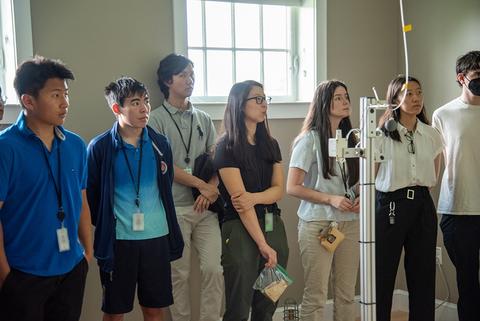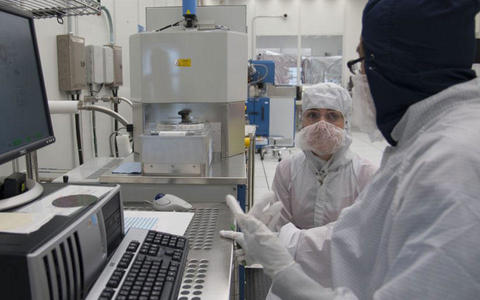PML Student Research Opportunities
NIST's Physical Measurement Laboratory is involved in a wide range of programs designed for undergraduates, graduate students, and postdoctoral researchers. They are listed below.
High School Students (Summer High School Intern Program (SHIP))
Students interested in science can spend their summers in our labs at the Boulder, Co or the Gaithersburg, MD campuses through NIST’s Summer High School Intern Program (SHIP). You’ll learn from top scientists at NIST and work on your own research project.
SHIP is an eight-week, unpaid educational internship. Students need to provide their own housing and transportation.

Summer Undergraduate Research Fellowship (SURF)
A 12 week Summer Undergraduate Research Fellowship program providing hands-on research experience in Atomic, Molecular, Optical, Radiation, and Chemical Physics.
Check out the list of 2024 PML Research Opportunities.

Atomic, Molecular and Optical Science
A cooperative study program sponsored jointly by the University of Maryland at College Park and the National Institute of Standards and Technology at Gaithersburg leading to the Ph.D. degree in the Chemical Physics Program at the University of Maryland.

Professional Research Experience Program (PREP)
The Professional Research Experience Program (PREP) is designed to provide valuable laboratory experience and financial assistance to undergraduate and graduate students from participating universities, such as Montgomery College at Gaithersburg, the University of Colorado at Boulder, and from the Colorado School of Mines at Golden, and many others. The Program is also available to undergraduate students, recent grads, and postdoctoral researchers. The research is normally carried out in NIST's laboratories.

Joint Quantum Institute Research Opportunities
The Joint Quantum Institute and the Physics Frontier Center at JQI offers research opportunities for graduate students and postdoctoral researchers. JQI is located on the College Park campus of the University of Maryland, adjacent to Washington D.C. Researchers can work at either the NIST or UMD campus. UMD's new Physical Sciences Complex is now home to many JQI scientists and their research groups.

JILA Research Opportunities
JILA is a joint enterprise between NIST and the University of Colorado. NIST participation involves PML's Quantum Physics Division. Participating CU departments include Physics, Chemistry and Biochemistry, and Astrophysical and Planetary Sciences (APS).

Research Experience News
Contacts
-
PML webmaster

